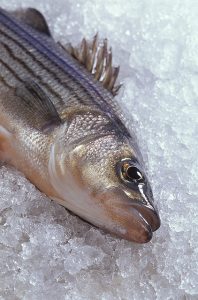Seafood HACCP Alliance Segment II Course

December 17, 2025 8am – 5pm (snow date: Dec. 19)
307 Maine Ave., Bangor, ME
Register Here
Cost: $180 in Maine, $215 out of state (includes certificate)
Refunds will not be available on or after December 5, 2025
Participants will NOT be admitted into the course without a physical copy of the Fish and Fishery Products Hazards and Controls Guide, 4th Edition (June 2022), which can be purchased at https://ifasbooks.ifas.ufl.edu/p-1111-fish-and-fishery-products-hazards-and-controls-guidance-fda-hazards-guide-4th-edition.aspx.
Each attendee must have a copy of the guide.
Segment I must be completed online through Cornell University by December 12, 2025. BEFORE attending this UMaine Segment II training. Segment I can be completed online at https://seafoodhaccp.cornell.edu/registration/. Completion notices are manually generated and only issued during normal business hours and excluding holidays, so please plan accordingly when completing the online segment one training. Please forward that confirmation email to Theresa Tilton at theresa.tilton@maine.edu at least 3 full business days prior to attending the UMaine Segment II training. This email is part of the package sent to AFDO in order to issue certificates of completion, which will be emailed to participants directly from AFDO.
Prior to attending Segment II, the instructors expect that participants have read sections of the Fish and Fishery Products Hazards and Controls Guide.
Instructors
- Gulsun Akdemir Evrendilek, Associate Extension Professor and Seafood Technology and Food Safety Specialist
- Beth Calder, Associate Professor of Food Science & Cooperative Extension Food Science Specialist
For more information, please contact Theresa Tilton at theresa.tilton@maine.edu or 207.942.7396 or 1.800.287-1485 (in Maine).
Agenda – draft
8:00 AM – Check-in
- Coffee, Tea and pastries
8:30 AM – Introductions
8:45 AM – Orientation, Course Objectives and Introductions
- Review: FDA Seafood HACCP Regulation 21 CFR Part 123 (30min)
- Review: The 7 Principles of HACCP (15min)
- Review: Seafood Safety Hazards in the FDA Hazards Guide (60min)
10:30 AM – Break and Roll-Call (15min)
10:45 AM – Review: Preliminary Steps (15min)
- Overview of the preliminary steps to developing a HACCP plan: HACCP Team, Product Description, and Flow Diagram & Process Narrative.
- Introduction to HACCP Alliance forms: Product Description
11:00 AM – Group Work Session 1: Preliminary Steps (20min)
Randomized pre-selected groups will be assigned one of the selected new models.
- Review product flow diagram and process narrative
- Complete product description form
11:20 AM – Conducting a Hazard Analysis with the FDA Hazards Guide (60 min)
- Overview using Hazard Guide – hazard tables, chapter format and Appendices
- Review of XYZ Seafood Mahi-Mahi used as an example to demonstrate the use of the guide, organizing hazards and introduction to Hazard Analysis form.
12:20 PM – Lunch (40 min)
1:00 PM – Group Work Session 2: Hazard Analysis (60min)
- Each group will conduct a HA for their model and identify relevant CCP’s
2:00 PM – Building a HACCP Plan with the FDA Hazards Guide (45min)
- Review how to develop a HACCP plan by following the selected control strategies.
- Guide students through the use of the hazards guide to select all necessary components of a HACCP Plan. (Histamine chapter as an example)
2:45 PM – Group Work Session 3: HACCP Plan (60 min)
3:45 PM – Presentation and Discussion of Group Work Sessions (60min)
4:45 PM – Wrap-Up, Student information sheet and evaluation
Group participation is mandatory!
In complying with the letter and spirit of applicable laws and pursuing its own goals of diversity, the University of Maine System does not discriminate on the grounds of race, color, religion, sex, sexual orientation, transgender status, gender, gender identity or expression, ethnicity, national origin, citizenship status, familial status, ancestry, age, disability physical or mental, genetic information, or veterans or military status in employment, education, and all other programs and activities. The University provides reasonable accommodations to qualified individuals with disabilities upon request. The following person has been designated to handle inquiries regarding non-discrimination policies: Director of Equal Opportunity, 5713 Chadbourne Hall, Room 412, University of Maine, Orono, ME 04469-5713, 207.581.1226, TTY 711 (Maine Relay System).
